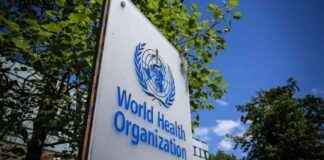The sudden withdrawal of foreign aid managed by the U.S. Agency for International Development (USAID) has sent shockwaves through Kenya, affecting the operations of crucial nongovernmental organizations like CFK Africa. As the executive director of CFK Africa, I have witnessed firsthand the devastating impact of this decision on the health and well-being of the communities we serve.
Located in the heart of Kenyan slums, including the sprawling Kibera settlement just outside Nairobi, CFK Africa plays a vital role in empowering youth and fighting extreme poverty. Our work is deeply intertwined with the aid provided by USAID, which has been a lifeline for thousands of people living on the margins of society.
When the U.S. government abruptly halted foreign aid, more than 1,000 patients at our health clinic lost access to critical HIV treatments, tuberculosis medications, and contraception services. The repercussions of this decision have been far-reaching, disrupting the lives of those who rely on our services for their very survival.
The uncertainty surrounding the future of these lifesaving programs has created a sense of fear and anxiety among both patients and staff. People are worried about being cut off from essential medications, facing the possibility of increased viral loads, and even death. The sudden loss of jobs due to the aid freeze has added to the sense of instability, deepening the challenges faced by vulnerable communities.
Impact on Healthcare Services and Livelihoods
The consequences of the USAID withdrawal extend beyond the realm of healthcare, affecting livelihoods and exacerbating existing inequalities. The supply chain disruptions caused by the aid freeze have created a ripple effect, impacting even programs that were not directly supported by USAID. Patients are scrambling to secure alternative sources of medication, while public health professionals fear a resurgence of diseases like HIV that could undo years of progress.
In response to these challenges, organizations like CFK Africa are working tirelessly to mitigate the losses and provide support to those in need. Our Youth Friendly Services Center in Kibera has become a beacon of hope for patients seeking counseling and assistance during these tumultuous times. The sense of community and collaboration that has emerged in the face of adversity underscores the resilience and compassion of the Kenyan people.
The Road Ahead: Collaboration and Change
As we navigate this period of uncertainty, the importance of collaboration and localization in aid efforts has come to the forefront. Decolonizing aid and empowering local communities to drive change are central tenets of our approach at CFK Africa. We believe that positive change is possible when we work together, leveraging our strengths and resources to create a brighter future for all.
While the loss of USAID funding poses significant challenges, it also presents an opportunity for nongovernmental organizations to rethink their strategies and forge new partnerships. By coming together to address the needs of our most vulnerable communities with empathy and innovation, we can overcome this crisis and build a more resilient healthcare system for the future.
In conclusion, the withdrawal of USAID funding has had a profound impact on the operations of nongovernmental organizations in Kenya, threatening the progress made in healthcare, poverty alleviation, and sustainable development. As we navigate these uncertain times, we remain committed to serving our communities with compassion and dedication, knowing that together, we can weather any storm. Jeffrey Okoro, Executive Director of CFK Africa, urges us to remember that the work must go on, with or without external support, as we strive to create a better world for all.

















